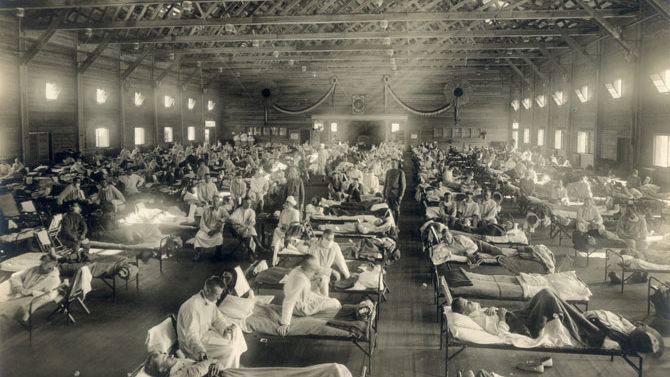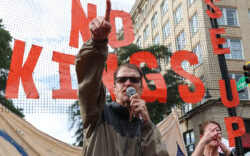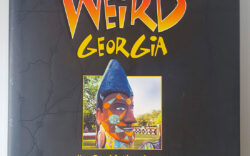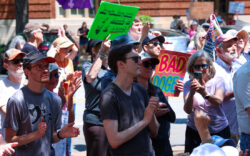Athens was a locked-down ghost town. The University of Georgia suspended classes indefinitely, and local authorities imposed a quarantine, ordering the closing of theaters, churches, restaurants and other businesses. Public gatherings were prohibited. An invisible killer stalked this city and this nation in the form of a quickly spreading pandemic, with a body count that multiplied day by deadly day. Hand in hand with the disease came fear and uncertainty in an already traumatized and divided America. In Washington, the crisis was met with a lack of leadership from the White House and Capitol Hill.
It was October 1918. Athens, the U.S. and the world were wracked by the ravages of the infamous Spanish flu that spread around the globe during and just after World War I. The plague lasted for nearly two years and, in sheer numbers, probably killed more people worldwide than the Black Death that scourged 14th-century Europe.
The U.S. had lost more than 100,000 soldiers, sailors, marines and airmen to fatal battle injuries and diseases during this nation’s 18-month involvement in World War I. The flu epidemic was a cruel second blow to a populace already reeling from the war’s tragedy and carnage.
Here in Georgia, the Annual Report of the Georgia State Board of Health for 1918 minced no words in its appraisal of the devastation wrought by the Spanish flu pandemic. “We will never know how many succumbed to the disease in Georgia,” the report noted somberly, “but the death rate has been high.” The report said that the disease of 1918 took “a greater toll of human lives than any past epidemic as far back as we have a history… the whole world has never known such a death dealing pest to the human family as we have had from this disease.”
When American troops came home from the European trenches in November 1918, many who greeted them were still wearing surgical masks outdoors. The disease finally diminished, but the viruses of hate and fear continued to plague this nation as the new year of 1919 dawned.
Americans weary of war and disease got little relief during 1919. Postwar inflation, anarchist bombings and labor strife dominated the headlines. Union organizers were often jailed, beaten or killed by police or corporate hirelings. Lynchings of black Americans and race riots that inflamed whole cities were so common by the middle of 1919 that African Americans coined the phrase “the red summer” to describe those bloody times. In his book, Red Summer, Cameron McWhirter says that the U.S. civil rights movement was awakened when black troops returned from what President Woodrow Wilson called a war “to make the world safe for democracy,” only to find that democracy was still not practiced in the “land of the free,” where black citizens were bound under Jim Crow-era American apartheid.
In the waning days of the Wilson administration, American authorities waged a war on domestic dissent that resulted in the jailing of thousands of antiwar activists, feminists, civil rights advocates and labor leaders. America filled its jails with political prisoners, including saintly socialist Eugene V. Debs, who languished in a jail cell at Atlanta Federal Prison for giving speeches critical of the war and the Wilson administration. Historian Frederick Lewis Allen called the 1920 Red Scare “a reign of terror.” In the 1920 election, Debs ran for president from his jail cell with the slogan “Vote for Convict Number 9653.” Nearly a million Americans did indeed vote for the socialist third party headed by Debs, lodging a protest vote of support and solidarity for the socialist leader and the thousands of other political prisoners locked up in America at the time. Republican Warren Harding won the 1920 election on a pledge of a “return to normalcy” in a jittery nation. Historians regard him as an inept president, but Harding granted Christmastime releases for Debs and many of his captive comrades nationwide.
Today, this nation faces yet another test. South African activist, theologian and Nobel Peace Prize recipient Desmond Tutu’s words are much needed and should be heeded in the America of 2020: “A time of crisis is not just a time of anxiety and worry. It gives us a chance, an opportunity, to choose well or to choose badly.”
Like what you just read? Support Flagpole by making a donation today. Every dollar you give helps fund our ongoing mission to provide Athens with quality, independent journalism.










